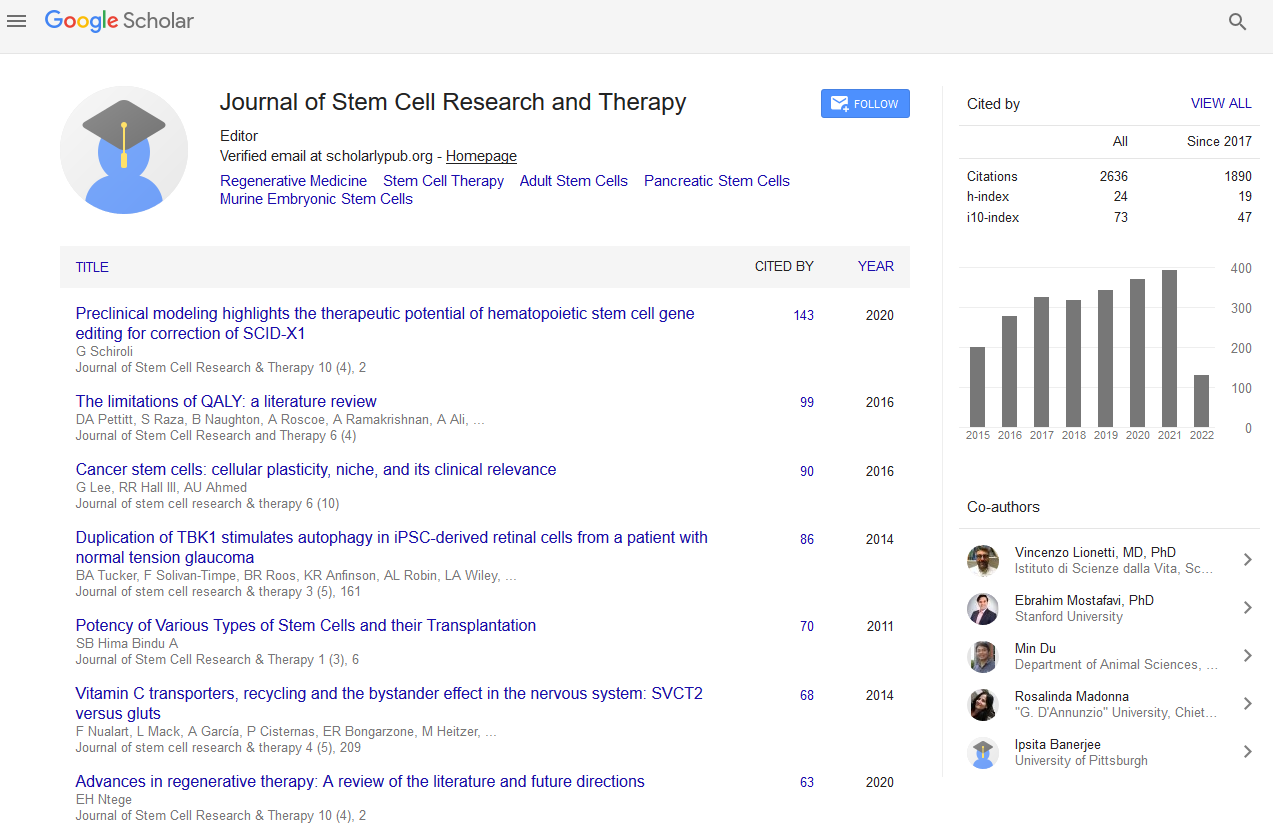Indexed In
- Open J Gate
- Genamics JournalSeek
- Academic Keys
- JournalTOCs
- China National Knowledge Infrastructure (CNKI)
- Ulrich's Periodicals Directory
- RefSeek
- Hamdard University
- EBSCO A-Z
- Directory of Abstract Indexing for Journals
- OCLC- WorldCat
- Publons
- Geneva Foundation for Medical Education and Research
- Euro Pub
- Google Scholar
Useful Links
Share This Page
Journal Flyer

Open Access Journals
- Agri and Aquaculture
- Biochemistry
- Bioinformatics & Systems Biology
- Business & Management
- Chemistry
- Clinical Sciences
- Engineering
- Food & Nutrition
- General Science
- Genetics & Molecular Biology
- Immunology & Microbiology
- Medical Sciences
- Neuroscience & Psychology
- Nursing & Health Care
- Pharmaceutical Sciences
Large scale transplantable liver graft using decellularized whole-organ scaffold
2nd International Conference and Exhibition on Cell & Gene Therapy
October 23-25, 2013 Holiday Inn Orlando International Airport, Orlando, FL, USA
Hiroshi Yagi
Scientific Tracks Abstracts: J Stem Cell Res Ther
Abstract:
There is a need for new methods to promote recovery from organ failure and regenerative medicine is an option that should be considered. Recent approaches using synthetic scaffolds and decellularized tissue have achieved a more complex level of tissue organization in organs with some success in clinical trials. In this context, the concept of decellularization technology has been applied to produce whole organ-derived scaffolds by removing cellular content while retaining all the necessary vascular and structural cues of the native organ. And there is an urgent need to find its feasibility of human scale-up and biological alterations of the scaffold after implantation. Our recent study revealed that the decellularization technology could be applied in a large animal model to develop a transplantable engineered liver graft. Decellularized liver scaffold was generated by the similar protocol as we did in rats, connecting to portal vein for inflow and inferior vena cava for outflow by surgical anastomosis. Anti-coagulants and antibiotics were applied prior to and during the surgery to prevent coagulation in the matrix scaffold and infection after transplantation. As a result, the large-scale liver scaffold was successfully transplanted in porcine body by vessel anastomosis without any leakage through day 10. Histological study revealed massive adhesion with infiltration of inflammatory cells including lymphocytes and fibroblasts, and the coagulation was not totally avoided in the transplanted graft. However, the graft was preserved in the porcine abdominal cavity without bleeding or absorption. Although it requires improvement and customization with regard to anti-coagulation and further applicable cell sources, we could scale-up and optimize the system to apply this unique technology for clinical applications.
Biography :
Hiroshi Yagi has completed his MD at the age of 24 years and afterwards, completed surgical residency both from Keio University. He also has completed his Ph.D. at 32 from Keio University and postdoctoral studies from Massachusetts General Hospital, Boston. He is a hepatobiliary/ pancreas and transplant surgeon as well as a member of national research project for regenerative medicine. He has published more than 20 papers and serving as an editorial board member of Organogenesis.


